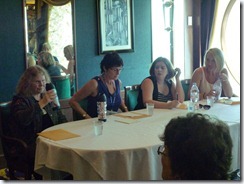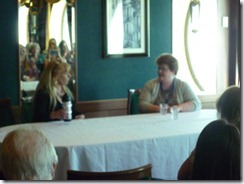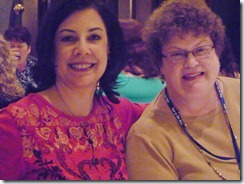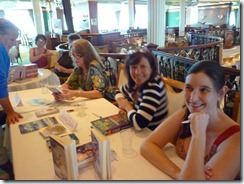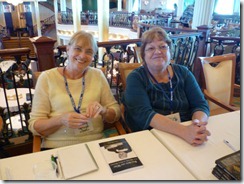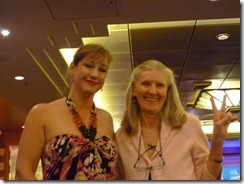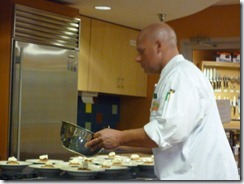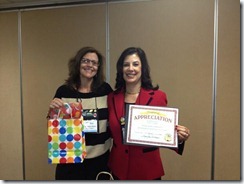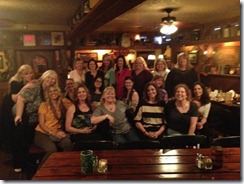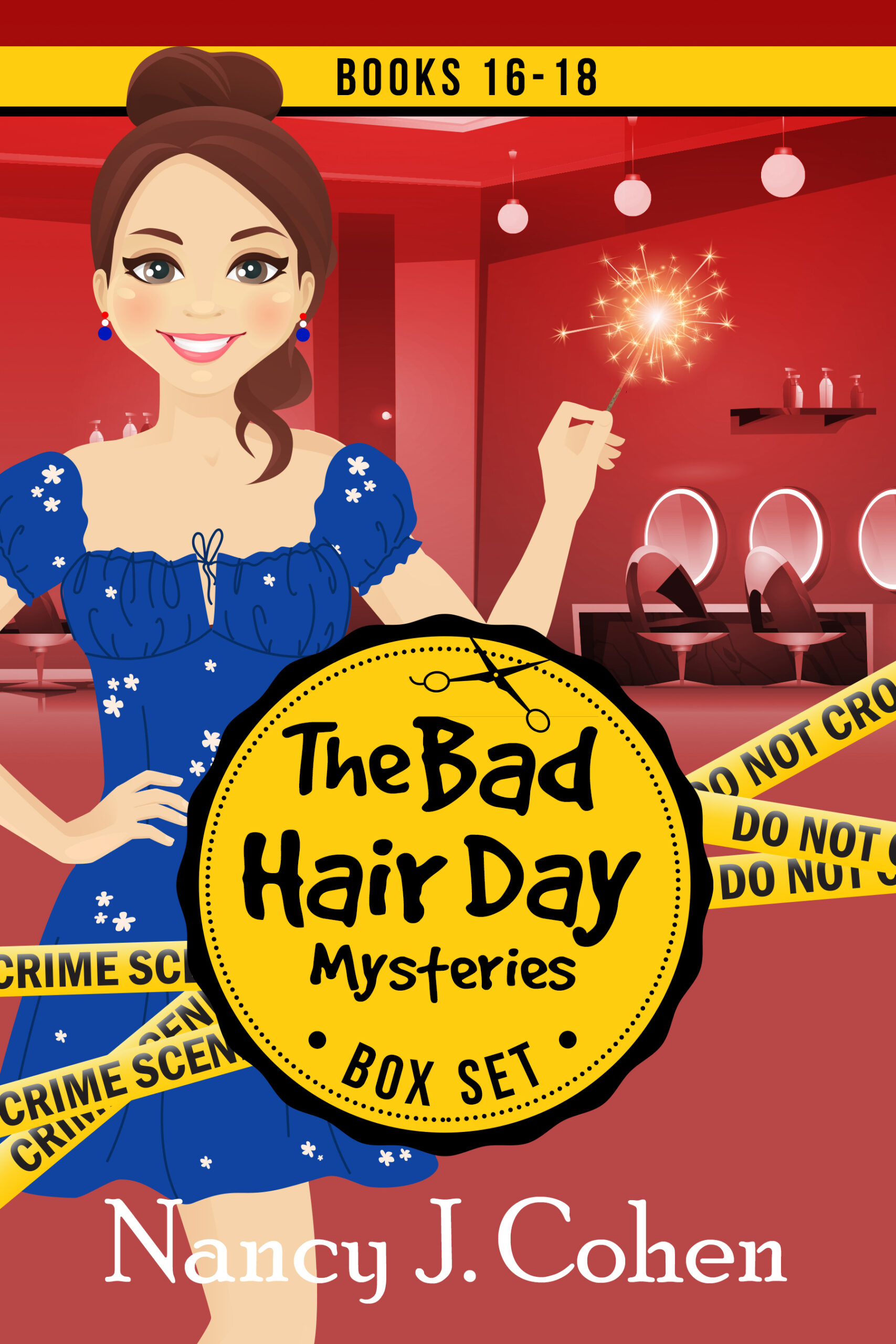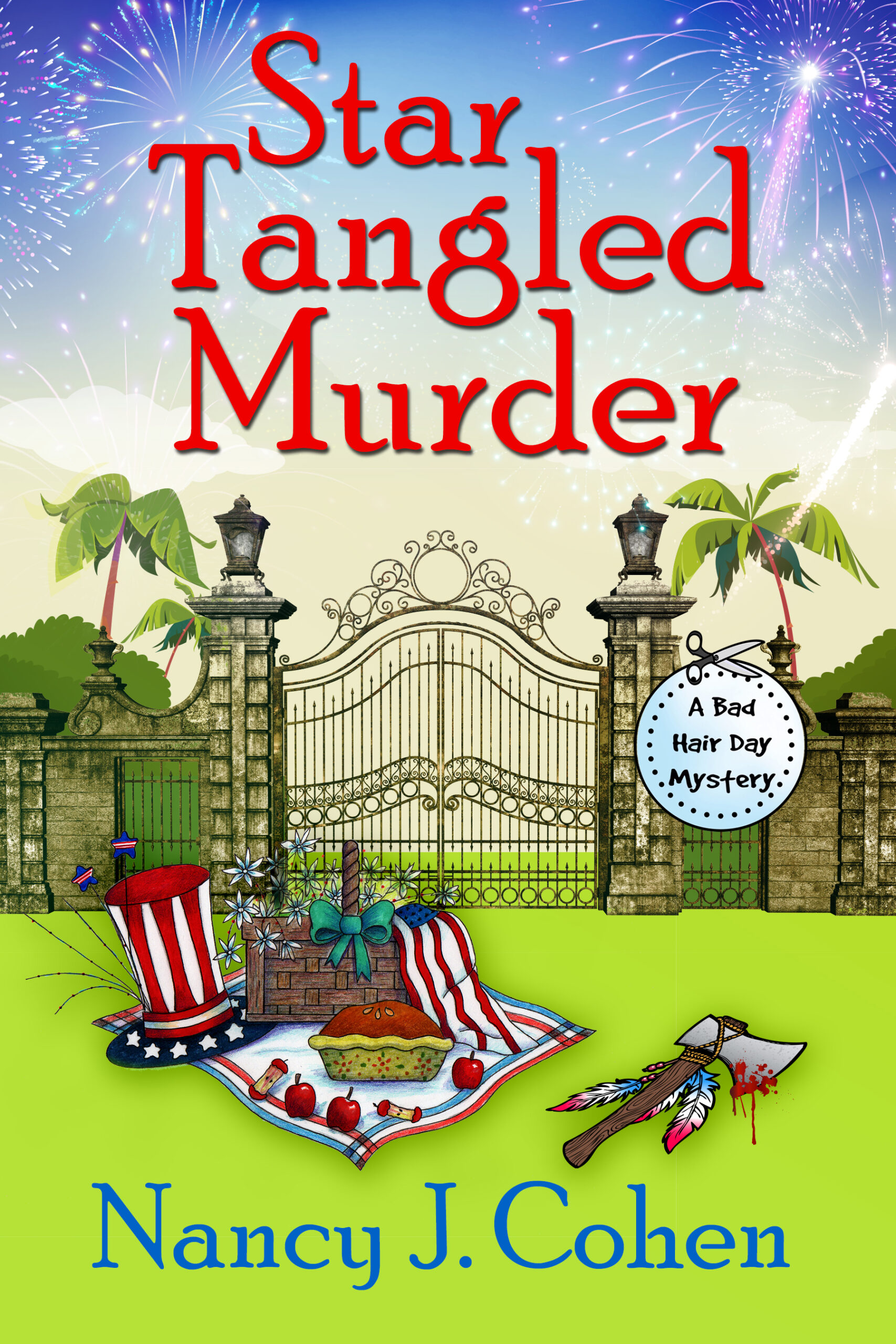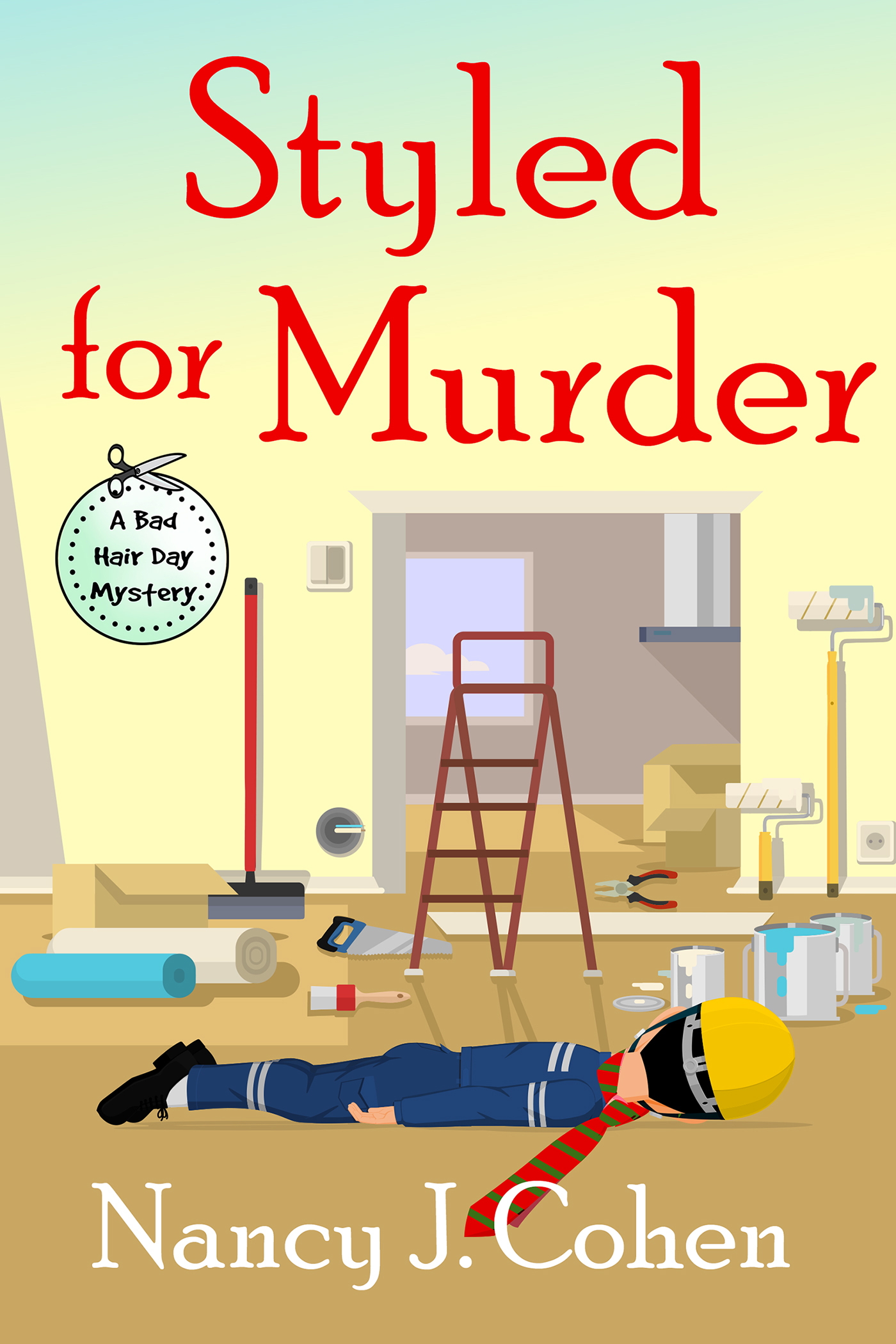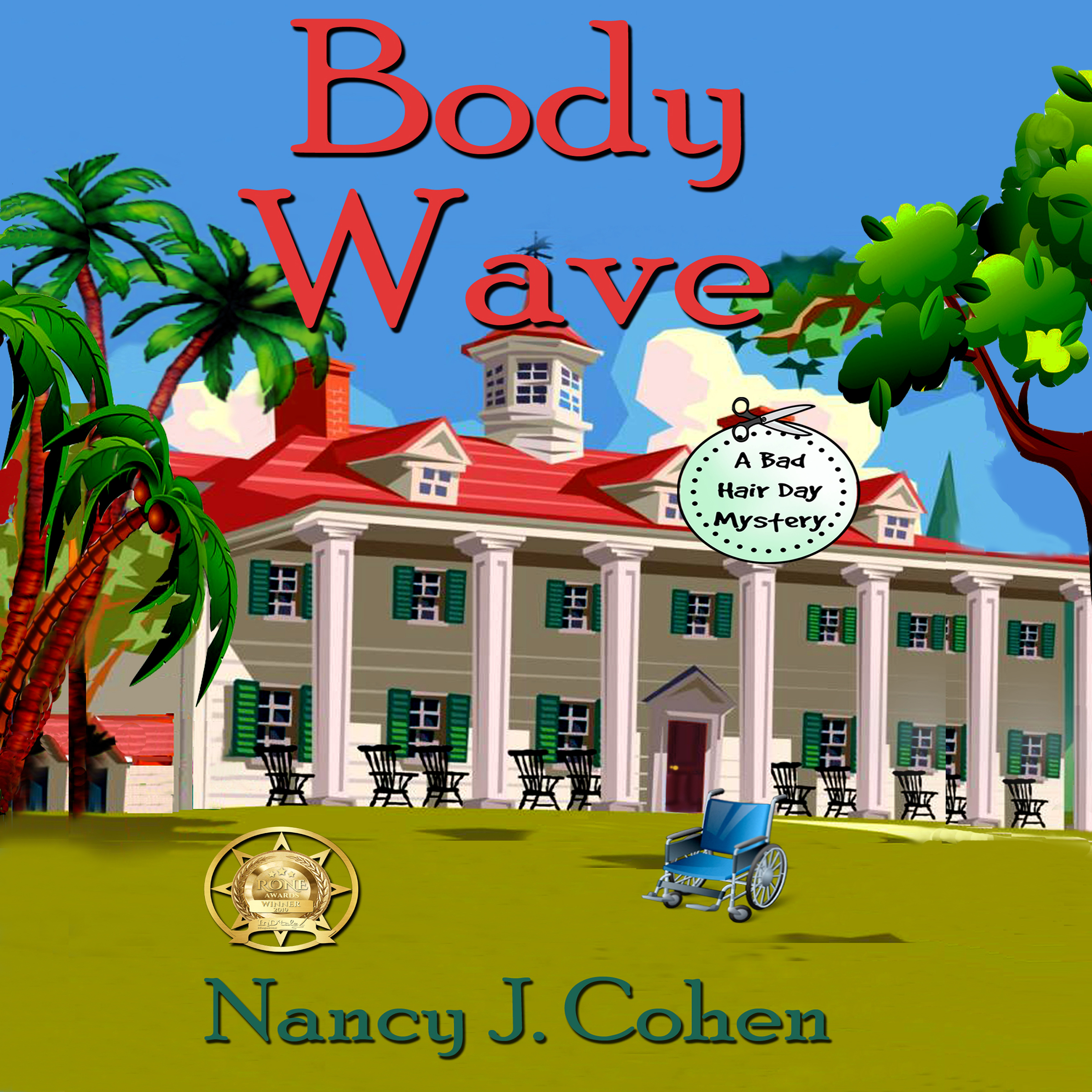FRW Cruise Conference
FRW Cruise Conference
Liberty of the Seas
Feb. 24-28, 2013
Day 1, Thursday
Ninety registered guests attended the Florida Romance Writers Cruise with your Muse conference aboard the RCCL ship Liberty of the Seas. We boarded easily, getting right onto the ship after parking and checking our luggage at Port Everglades. Upstairs at the Windjammer Buffet, we ate lunch and waved to fellow FRWers who’d already arrived. We checked into our cabin and then set out to explore the ship. This is a beautifully appointed ship of the fleet with its traditional interior Promenade, ice skating rink, and usual bars and lounges. Downstairs at the conference center, we picked up our registration materials. Then we hustled to the lifeboat drill before departure time. At 5:00pm, we met our conference shipmates at a Welcome Aboard party in the Sphinx lounge on deck five. The editors and agents shared industry news and writing tips.
Editor/Agent Tips
Get rid of the prologue
Hit the ground running
Avoid clichéd writing
Shorter works, less than 100,000 words, are more desirable these days.
Don’t overuse dialogue tags.
Next, my husband and I dashed to the Diamond Club lounge where, as repeat cruisers at a certain level in the Crown & Anchor Society, we enjoy benefits like free drinks and appetizers. Of course, this was my favorite activity and we made it up here on deck 14 every evening. Our dinner seating was late at 8:30 so we had plenty of time to meet fellow cruise enthusiasts.
Day 2, Friday
This morning, workshops were held with authors Traci Hall, Kathleen Pickering, and Karen Kendall. I found some time for walking the decks with my husband. We sat the pool and watched the action or lounged on our balcony to stare at the ocean.
Along the way, I got a glimpse of an interesting lady who would intrigue me for the entire trip. On previous cruises, I always spotted a character who would be great in my books. Thus the elegant white-haired woman from a prior voyage became the Countess in Killer Knots, my cruise ship mystery. I haven’t placed the witch lady from our previous cruise yet, but she’ll make her way into one of my stories. On this trip, I saw someone who definitely had an air for dramatics.
This woman had blond hair that she wore teased and curled atop her head like a poodle. I swear, she even had poodle bangs. But this wasn’t all. No matter the time of day or place, she wore a chiffon dress with spaghetti straps and sparkles and high heels. One day her shoes were black velvet with rhinestones. Her dresses glittered and the hemline swayed as she moved. I saw her in ivory, burgundy, and gold variations of the same dress, often with sequins. She wore a heavy application of makeup as well. I assumed she must be European. She just had that air about her. We always saw her clinging to the arm of a dapper gentleman who looked fairly ordinary in comparison. Neither one of them were youngsters. She’ll end up in one of my stories for sure.
Later that afternoon, I sat in on a workshop with bestselling authors Heather Graham and Charlaine Harris. Here’s what they said about writing humor:
Charlene: “When you’re writing sex, there is no dignity, and it can be funny.”
Heather: “It’s fun to have supporting characters where things don’t always go well. You can make jokes with these people.”
Floridian Idol followed, where the editors and agents tore apart submissions from attendees. You could learn a lot by listening to their comments, and this session was well attended.
Day 3
Saturday, we arrived at Cozumel. My husband and I took a taxi into town for $8.00 each way. Even though I had vowed not to buy anything, I ended up with a pair of earrings, rum cakes, and Mexican vanilla. That evening, we went to the show on the ship. The entertainer was a magician who kept the audience laughing.
Day 4
Sunday morning was my workshop on Mystery Writing 101. I had a great group and the time went fast. We hustled out to attend Charlaine’s keynote speech where she talked about her long career history and provided inspiration for the rest of us.
That afternoon, ten of us authors held a booksigning in the dining room. Since the notice had gone into the ship’s daily newsletter, readers flowed into the room to buy our books. I couldn’t believe it when I’d sold my last copy! It was one of the best conference booksignings I’ve done.
We hurried off to see Saturday Night Fever in the main theater while others went to the ice show.
At the end of the day, we had a farewell party led by our FRW president Rose Lawson and the hard-working conference planners before our final dinner together.
The four days went by too fast. We hung out; we talked; we learned and we shared. We got to know each other and the editors and agents who had nowhere else to go. We watched a dazzling parade of famous animated characters on the Promenade, sampled as much food as our stomachs would allow, and explored the hidden nooks of the sleek vessel. We each came away with something different—an invitation to submit pages to an editor/agent, a sense of peace, a few extra pounds.
I hope you can join us next time.











